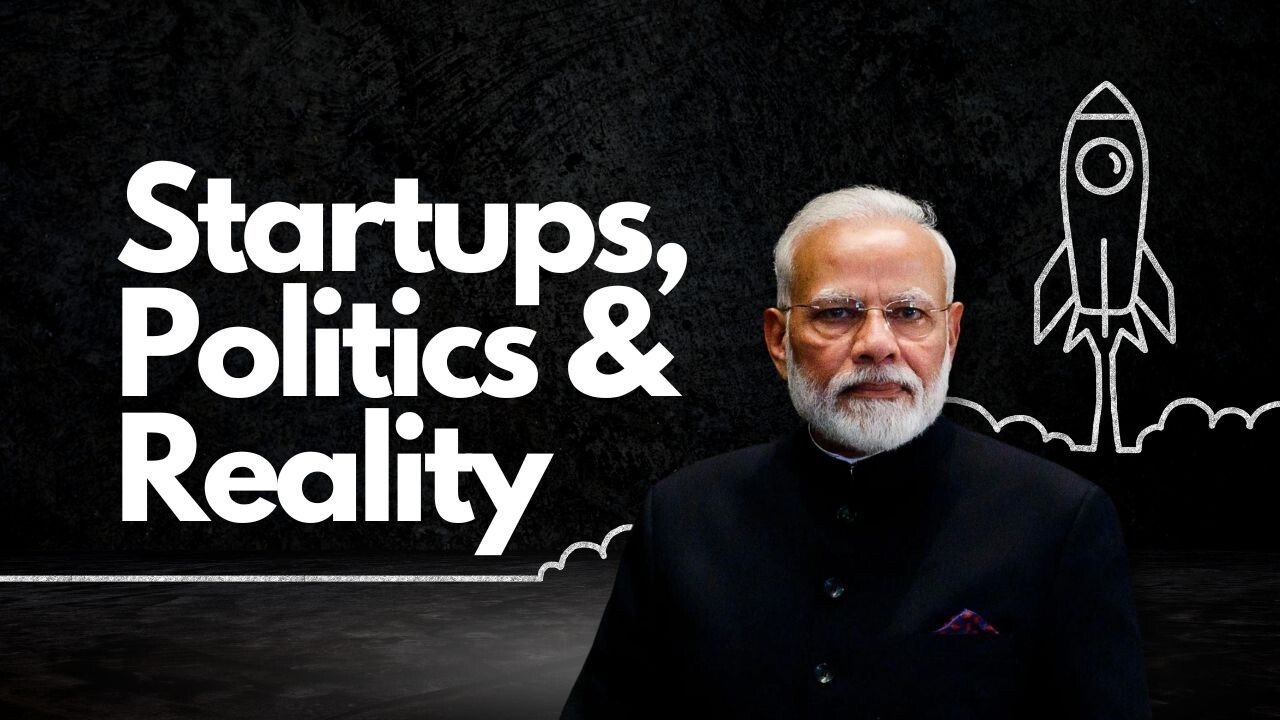Introduction: Politics Meets Innovation
The 2025 Lok Sabha Elections are not just a turning point for India’s political future—they’re also a defining moment for the Indian startup ecosystem. With over 100,000 registered startups and a steadily growing unicorn club, India is fast becoming a global startup powerhouse.
But with elections come policy changes, economic recalibrations, and shifts in investor sentiment. So, what does this mean for Indian entrepreneurs and the startup community?
Let’s break it down.
1. Policy Shifts: Will the Next Government Support Startups?
Startups in India thrive not only on innovation but also on government support through schemes like:
Startup India
Digital India
Make in India
Stand-Up India
The 2025 elections could bring a change in leadership or ideology, potentially affecting these initiatives.
What to Watch:
Will the next government continue or expand existing startup-friendly schemes?
Could new regulations increase compliance burdens or ease them?
Is there a possibility of increased FDI in tech and innovation sectors?
Prediction: If a pro-business government comes to power, expect more tax incentives, ease-of-doing-business reforms, and possibly new grant/funding programs for Tier 2 and Tier 3 city startups.
2. Funding Landscape: Investor Sentiment Post-Elections
Political stability is a key driver of foreign and domestic investment.
During an election year:
Venture capitalists may adopt a wait-and-watch approach.
Repo rate policies by the Reserve Bank of India (RBI) may also affect funding flows.
How Elections Can Impact Funding:
A stable mandate can restore investor confidence.
Uncertainty or coalition governments may slow down capital inflows.
Post-election budgets often introduce new tax policies that can either attract or repel investment.
Insight: If the new government introduces startup-focused economic reforms, we might see a funding rebound in late 2025, especially in fintech, cleantech, and AI sectors.
3. Regulatory Changes: GST, Taxation & Compliance
Startups often struggle with compliance, especially GST, TDS, and corporate tax policies.
Possible Election-Driven Changes:
A push for simplified tax regimes for MSMEs and startups.
Enhanced data protection laws impacting tech and SaaS startups.
New IPO guidelines if the government wants to boost domestic listings.
What Founders Should Do: Keep an eye on manifestos and budget announcements immediately after the elections. Join policy-focused startup networks or forums to stay informed.
4. Sectoral Boosts: Who Wins Depending on Who Wins?
Different political parties tend to favor different industries.
If the incumbent government returns:
Focus may remain on infrastructure, manufacturing, and semiconductors.
More incentives under PLI schemes.
If a new coalition takes charge:
Expect a possible pivot to healthcare, education, rural tech, or social entrepreneurship.
Greater emphasis on decentralization and cooperative business models.

5. Job Creation, Skilling & Startups as Nation Builders
With youth unemployment being a key election issue, startups will play a big role in job creation.
A forward-looking government might:
Partner with startups for skilling programs.
Fund EdTech and HRTech platforms.
Push for entrepreneurship in rural areas via local incubators and accelerators.
Fun Fact:
India adds more than 3 new startups every hour, yet access to skilled talent remains a challenge. Policy backing could turn this challenge into an opportunity.
6. What Startup Founders Should Do During Election Season
Action Plan:
✅ Engage with local and national policymakers
✅ Follow election manifestos and look for startup mentions
✅ Prepare for delays in funding or government clearances
✅ Diversify markets or clients to hedge against political uncertainty
✅ Be ready to pivot depending on post-election market trends
Read More: 26/11 Mumbai Terror Attacks: A Dark Day in Indian History
Final Thoughts: High Stakes, Higher Potential
The 2025 Lok Sabha elections are more than a democratic exercise—they’re a litmus test for India’s economic future. Whether it's ease of doing business, regulatory clarity, or access to capital, the startup ecosystem stands to gain—or lose—based on the outcome.
But one thing's for sure: Indian entrepreneurs are resilient, and regardless of the political climate, innovation in India is here to stay.
Want More?
Follow our blog for regular updates on the startup ecosystem, policy changes, and post-election analysis. The next unicorn might just be shaped by a vote!
Explore other popular Posts:
Blog | News | Entertainment | Education | Sports |
Technology | Cryptocurrency | Stock | Home | Sitemap





